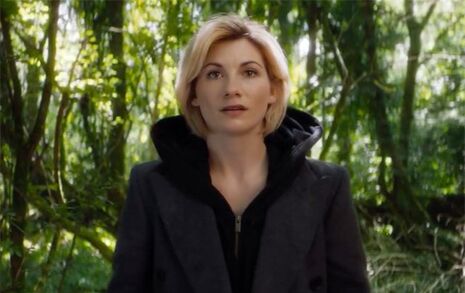Talking about regeneration – Jodie Whittaker the 13th Doctor
Following the announcement of the new Doctor, Lillian Crawford acknowledges the importance of a casting decision despite being sceptical of Whittaker’s acting abilities

The new Doctor being female was surely inevitable. Casting an aging Scot for the latest series was suicidal – to cast another male in the role may well have dealt a final, exterminating blow. With acclaim and viewing figures at an all time low, the show as a whole has been forced to regenerate.
The most appealing of these changes has been the ousting of Steven Moffat, who, as head writer, has pulled the show on a stale downward trajectory. With such novel concepts as the moon being an egg and crows that talk under his watch, the BBC has made an undoubtedly necessary decision.
“The quality of the actress must also not be overlooked, however, for to do so would be misogynistic in the extreme – to see this as good casting would be to judge Whittaker for her sex alone.”
Anticipating the arrival of Chris Chibnall should, perhaps, have brought ready expectation for an actor in the Broadchurch cohort. Had Olivia Colman not appeared in The Eleventh Hour opposite Matt Smith, she might have been a top choice. Certainly a less ludicrous suggestion than Tilda Swindon, who seemed far too good to be true.
Choosing a 13th Doctor may have implied the show needed a return to dark, and comedic, form. Gender, naturally, being itself one of the more bothersome symptoms of synthetic ignorance, should surprise any intelligent viewer to have spread as an issue as far as Gallifrey. The decision to change this aspect of the protagonist’s character then really ought not matter. Nevertheless, the show accepting and acting on this, at long last, should certainly be deemed a feminist achievement. The choice of Phoebe Waller-Bridge seemed ideal in this.
Much like the casting of Matt Smith, the selecting of Jodie Whittaker seems advantageous in her lack of fame. This, regrettably, stems from her frankly atrocious filmography to date. Contempt for Whittaker should not, let it be said, undermine the importance of this decision. The quality of the actress must also not be overlooked, however, for to do so would be misogynistic in the extreme – to see this as good casting would be to judge Whittaker for her sex alone.
The closest to ‘fame’ Whittaker has risen to may be in the remakes of St. Trinian’s, although her inferiority to Gemma Arterton has prevented her from achieving a similarly glittering career, an admittedly remarkable feat. Others may recognise her from Attack the Block, an abysmal 2011 comedy that similarly spawned John Boyega to sci-fi stardom.
Those that delight in Sunday evening commercial-filled crime dramas might know Whittaker better for portraying Beth Latimer in Broadchurch. As a grieving mother, her hilariously awful accent often brought light relief to an otherwise dreary and unnecessarily controversial series. To think that she has been transferred from the light channel to this most beloved of roles, an intrinsically British institution, is, at present, heartbreaking.
I add this, of course, in the hope that I am proved wrong. Remember that this is a casting to be celebrated, and its significance for the industry should not be understated. Whittaker herself, unfortunately, is yet to prove herself, although it could certainly prove to be her making. We must not forget that Boyega himself was nothing short of painful to watch alongside her in Attack the Block, but has since gone on to prove himself a firm favourite in the Star Wars universe. This will be a landmark in TV history – let us hope it is not one we come to regret
 News / Cambridge academics sign open letter criticising research funding changes22 February 2026
News / Cambridge academics sign open letter criticising research funding changes22 February 2026 News / Supporters protest potential vet school closure22 February 2026
News / Supporters protest potential vet school closure22 February 2026 News / University Council rescinds University Centre membership20 February 2026
News / University Council rescinds University Centre membership20 February 2026 News / Hundreds of Cambridge academics demand vote on fate of vet course20 February 2026
News / Hundreds of Cambridge academics demand vote on fate of vet course20 February 2026 Comment / A tongue-in-cheek petition for gowned exams at Cambridge 21 February 2026
Comment / A tongue-in-cheek petition for gowned exams at Cambridge 21 February 2026








